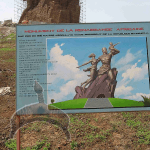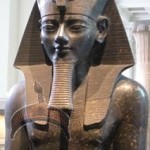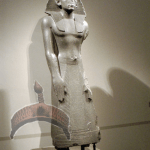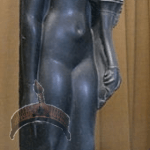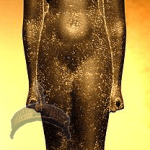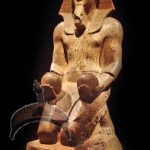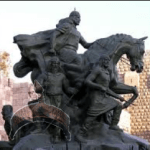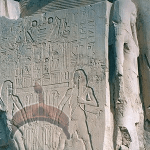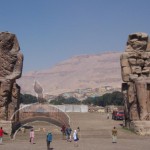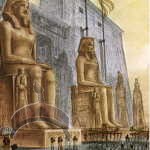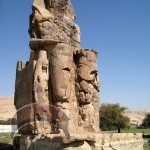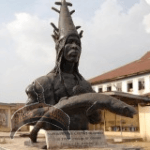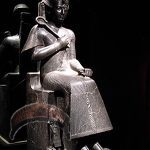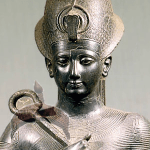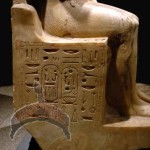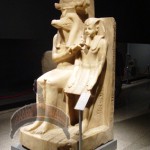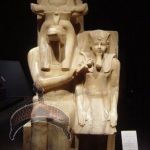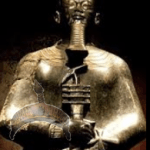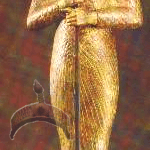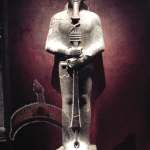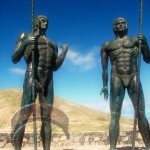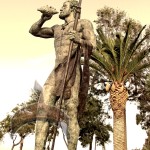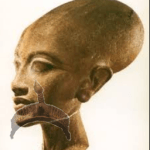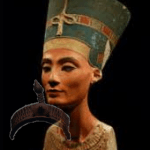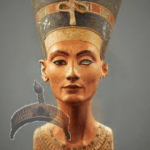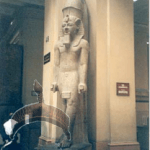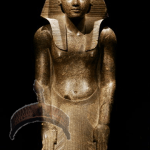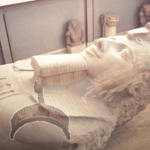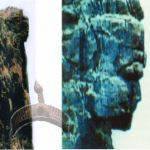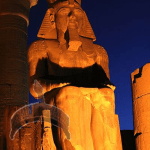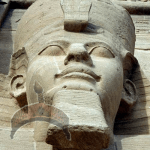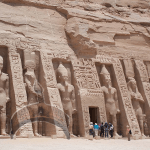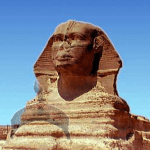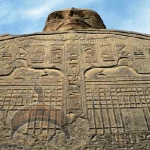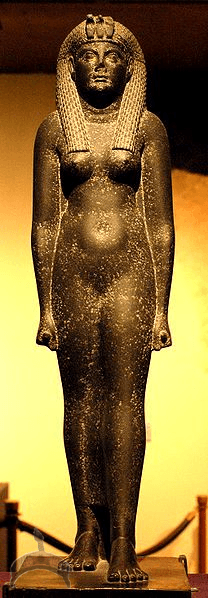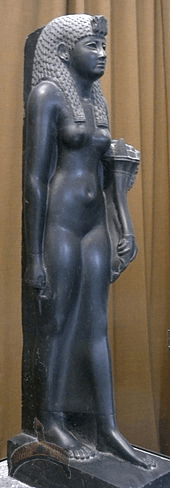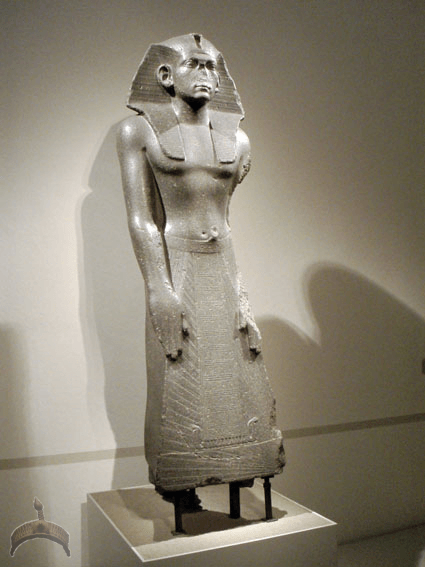Nigeria's no 1 blog for latest Nigeria Property, Nigeria House,Private Property Nigeria, Real Estate Nigeria, Lagos Island nigeria, lekki lagos real estate, arable farming land nigeria, Land for sale, to let,for sale and for rent.
Sunday, May 17, 2015
17 of Top 20 African Sculptures (Cleopatra)
Cleopatra VII Philopator (69 BC – August 12, 30 BC) was the last pharaoh of Ancient Egypt. She was a member of the Ptolemaic dynasty, a family of Greek origin that ruled Egypt after Alexander the Great’s death during the Hellenistic period. The Ptolemies, throughout their dynasty, spoke Greek and refused to speak Egyptian, which is the reason that Greek as well as Egyptian languages were used on official court documents such as the Rosetta Stone.
By contrast, Cleopatra did learn to speak Egyptian and represented herself as the reincarnation of an Egyptian goddess, Isis. Cleopatra originally ruled jointly with her father Ptolemy XII Auletes and later with her brothers, Ptolemy XIII and Ptolemy XIV, whom she married as per Egyptian custom, but eventually she became sole ruler. As pharaoh, she consummated a liaison with Julius Caesar that solidified her grip on the throne. She later elevated her son with Caesar, Caesarion, to co-ruler in name. After Caesar’s assassination in 44 BC, she aligned with Mark Antony in opposition to Caesar’s legal heir, Gaius Julius Caesar Octavianus (later known as Augustus).
With Antony, she bore the twins Cleopatra Selene II and Alexander Helios, and another son, Ptolemy Philadelphus. Her unions with her brothers produced no children. After losing the Battle of Actium to Octavian’s forces, Antony committed suicide. Cleopatra followed suit, according to tradition killing herself by means of an asp bite on August 12, 30 BC. She was briefly outlived by Caesarion, who was declared pharaoh by his supporters, but he was soon killed on Octavian’s orders. Egypt became the Roman province of Aegyptus.
To this day, Cleopatra remains a popular figure in Western culture. Her legacy survives in numerous works of art and the many dramatizations of her story in literature and other media, including William Shakespeare’s tragedy Antony and Cleopatra, Jules Massenet’s opera Cléopâtre and the 1963 film Cleopatra. In most depictions, Cleopatra is put forward as a great beauty, and her successive conquests of the world’s most powerful men are taken as proof of her aesthetic and sexual appeal. In his Pensées, philosopher Blaise Pascal contends, evidently speaking ironically because a large nose has symbolized dominance in different periods of history, that Cleopatra’s classically beautiful profile changed world history: “Cleopatra’s nose, had it been shorter, the whole face of the world would have been changed.”
15 of Top 20 African Sculptures (Amenhotep II)
15) Sallah Ad Din (Saladin)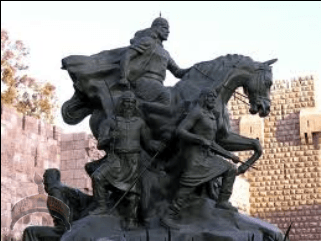

Ṣalāḥ ad-Dīn Yūsuf ibn Ayyūb (1138 – March 4, 1193), better known in the Western world as Saladin, was a Kurdish Muslim, who became the first Sultan of Egypt and Syria, and founded the Ayyubid dynasty. He led Muslim and Arab opposition to the Franks and other European Crusaders in the Levant. At the height of his power, his sultanate included Egypt, Syria, Mesopotamia, Kurdistan, Hejaz and Yemen. Under his personal leadership, his forces defeated the Crusaders at the Battle of Hattin, leading the way to his re-capture of Palestine, which had been seized from the Fatimid Egyptians by the Crusaders 88 years earlier. Though the Crusader Kingdom of Jerusalem would continue to exist for a period, its defeat at Hattin marked a turning point in its conflict with the Muslims and Arabs. As such, Saladin is a prominent figure in Kurdish, Arab and Muslim culture. Saladin was a strict adherent of Sunni Islam. His chivalrous behavior was noted by Christian chroniclers, especially in the accounts of the Siege of Kerak, and despite being the nemesis of the Crusaders, he won the respect of many of them, including Richard the Lionheart; rather than becoming a hated figure in Europe, he became a celebrated example of the principles of chivalry.
16)Amenhotep II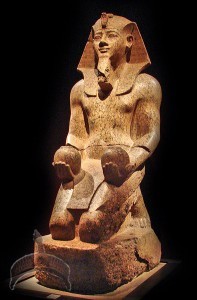
Amenhotep II (now and again read as Amenophis II and significance Amun is Satisfied) was the 7th Pharaoh of the 18th administration of Egypt. Amenhotep acquired a limitless kingdom from his dad Thutmose III, and held it by means of a couple of military battles in Syria; nonetheless, he battled substantially less than his dad, and his rule saw the compelling end of dangers in the middle of Egypt and Mitanni, the significant kingdoms competing for force in Syria. His rule is normally dated from 1427 to 1401 BC.
Different tactics Nigerian banks use in defrauding customers
Francis Agadaga still remembers events of that fateful evening. He could have been a widower by now. On September 12, 2014, he rushed to an Automated Teller Machine point in his neighbourhood at Igando, a Lagos suburb, to pick some cash with which to take his ailing wife, Sandra, to the hospital. It was a tough period for the family. The N7, 850 left in his bank account would go a long way in dousing the situation if he could get access to the fund. After inserting his card into one of the ATMs and requesting to withdraw N7, 000, what followed almost left the father of two in tears.
“It was on a Sunday afternoon and we had just returned from church when my wife started feeling feverish,” he began. “Her temperature became so high that we needed to quickly rush her to a hospital. I didn’t have any money on me at the time and so I hurried to the nearest ATM point to withdraw the little money I had in the account.
“However, to my utmost shock, I got a debit alert but did not get any money from the machine. I was so confused and tensed because I had never experienced such before and the kind of situation on ground then was a matter of life and death,” he said.
After waiting for a while to see if the cash would pop out of the machine, Agadaga left the place heartbroken and more tensed than he ever was. It took the kindness of few neighbours and friends to raise the money needed to save his wife’s life at a private clinic she was rushed to for treatment.
“It was my neighbours and friends who helped to raise N8, 000 with which I took her to the hospital where she was given injections and drugs. The next day, I went to my bank to complain and bank officials promised to reverse the debit after I had filled a form.
“I went back there after about a week later to find out why the money had not been reversed as promised. I was told their system had some technical problems, which they were trying to fix. I decided to give them some more time for the problem to be rectified. But after going there several times and being told the same thing, I left everything to God.
“Since that period till now, my N7, 000 has not been refunded. If not for my neighbours and friends who helped with some cash that day, maybe my wife could have died from that sickness,” the disgruntled young father toldSaturday PUNCH.
Like Agadaga, Ejiro Dumuje, is still waiting for her money to be reverted back to her account four months after she was wrongly debited by an ATM in Abeokuta, the Ogun State capital. Dumuje had visited the ancient city to purchase bales of Adire fabric to resell in Edo and Delta states where she shuttles frequently when she suddenly ran out of cash. She headed for the nearest ATM point to collect some money. After paying her initial request of N40, 000, the young lady decided to pick additional N5, 000 from the machine. That was where things went wrong. A debit alert was sent to her phone but the machine never paid that money. Four months on, Dumuje is still waiting after several complaints at her bank.
“I have been to my bank more than three times to complain and ask why my money has not been refunded,” she said. “The people at the customer care just try to calm me by assuring that the case was still under investigation and that a refund would be effected as soon as possible. This is the fourth month and I have not seen my money. I am tired of going to complain. If they like, they can pay and if not, I leave them to God,” the visibly enraged lady said.
Bayo Odesina was in his office in Lagos in December 2013 when he got a debit alert of N250, 000 on his phone. It was an alert for an online transaction carried out through his MasterCard in Flushing, New York, United States of America. Agitated by the development, Odesina phoned his account officer to complain about the development and followed it up by contacting his lawyers to write the bank.
The financial institution replied and asked for a three-month period to properly investigate the matter. After three months, the bank sent a letter to Odesina’s home, accusing him of negligence and carelessness for the act. According to the bank, he had compromised the Personal Identification Number of his ATM card, thereby allowing fraudsters access to it in the process. Meanwile, it was only a few days after Odesina had approached his bank to block his ATM card after it went missing. The bank simply absolved itself of any blame in the act.
Odesina’s lawyers wrote the bank again, threatening to take the matter to court if their client’s money was not refunded. In response, the bank requested for more time, apparently trying to frustrate the matter. One year passed and nothing changed. Odesina, a media practitioner, wrote the bank’s corporate affairs unit, this time, introducing himself as a journalist and highlighting how much damage a publication of the matter could do to the bank’s image. That same day, he was contacted by the head of the corporate affairs unit, who strongly assured him that his money would be refunded in a few days time after talking him out of publishing the matter in the newspaper where he worked. Three days later, an alert did come on his phone. His money had been refunded after about 13 months of intense struggle.
“Their plan was to make me forget about the money,” Odesina told Saturday PUNCH earlier in the week. “They kept using all sorts of delay tactics just to frustrate me so I could give up on the money. If it were N5, 000, maybe I would have forgotten about it, but N250, 000 is not something I could just let go like that because it was a lot of money.
“My only saving grace was that I am a journalist. The bank already accused me of being careless with my ATM PIN. They also said that I had released vital information of the card to fraudsters who then went ahead to make online purchases with it in the US. The card in question had got missing and I made a request for it to be blocked, so how could that same card be used to make any transaction if not through the help of an insider in the bank who knew how to bypass certain security systems put in place?
“When I realised that the bank was not going to pay my money back, I contacted the people at the corporate affairs unit and made them understand what damage a news of the entire drama could do to the image of their bank. That same day they called me and pleaded with me to give them a few days and that they would pay me back my money. Three days later, I got an alert of N250, 000 on my phone. That was one year and one month after the initial incident. Imagine if that was all I had in the bank or I had not pursued the matter vigorously, I could have lost that much to the bank. I have since closed down my account with the bank,” he said.
A young factory worker in Akure, Ondo State, Yemi Onanuga, was stunned recently when N11, 300 was deducted from his account by his bank for an insurance scheme the financial institution claimed he subscribed to earlier. The money was part of funds he had been saving for months to establish a salon.
“I was shocked when I received the debit notification because I never subscribed to any insurance scheme at any period. It took several months of complaint and repeated visits to the bank before my money was paid back into my account. It was a terrible experience that really affected me in several ways,” Onanuga toldSaturday PUNCH.
Illegal deductions as these are now a common feature despite series of complaints from many bank customers across the country. While some have been lucky to have their funds returned into their accounts, others continue to lament in vain. For them, it is a refund that might never come.
Three weeks ago, Amarachi Ejindu went to an ATM at the Akowonjo area of Lagos to withdraw some money. Though, her money was reversed back after receiving a debit alert initially for the transaction, the N65 ATM charge was not. It took a while before Ejindu noticed this and when she did, no reasonable explanation came to her mind. Why should she be charged for a transaction that was never completed or even occurred, she wondered. Why was the N65 not refunded along with the amount reversed? Who does that money go to? What does the CBN say about this? The questions kept running on her mind.
“I was really concerned about this that I had to call my bank’s customer care on the phone,” Ejindu opened. “It is a small amount but then I imagined why I should be charged for a transaction that never took place. It sounded like a rip off to me. I called the customer care people and they could not give a satisfactory explanation for this. They told me to make a formal complaint and that the matter would be looked into. I did that but they have yet to refund that money. Indeed, N65 could look like a small amount but think about how many customers would have experienced the same problem in a day and then see how much the banks could be making off people without their knowledge,” she said.
In Ilorin, the Kwara State capital, Abdullahi Lawal, an undergraduate, did not also get his N65 back after a cash reversal on his account two months ago. It was on a Friday evening and the 23-year-old had visited a cash point in the city to pick some amount to transport him to Ibadan in Oyo State where a cousin was getting married that weekend. During the transaction, Lawal was debited N4, 000 which was soon reversed back into his account. Like Ejindu, he noticed that what came back to him was N65 less. There was nobody he could complain to, so he forgot about the matter and moved on.
“When I noticed that N65 was still missing from my account after the reversal, I decided to let go as it was a small amount and moreover, there was nobody I was going to complain to that day. If it were a bigger amount, of course I would have gone to the bank to complain. I have forgotten about it because I am not sure the bank will refund the money,” Lawal said.
Apart from the N65 ATM charge, customers are also made to pay for multiple Short Message Service alerts for a single transaction on their bank accounts, losing more of their funds in the process. Many of these charges are not even communicated to the unsuspecting customers by the financial institutions.
A social economist, Kabiru Tiamiyu, told Saturday PUNCH that with all kinds of deductions being carried out in the name of charges by Nigerian banks, it is almost impossible for customers, especially those running savings accounts to get back the exact amount they kept in the banks.
According to Tiamiyu, one of the easiest ways banks milk unsuspecting customers is through SMS. He said banks still charge N4 per SMS sent to a customer when even bulk SMS providers in the country offer the service for less than N1.00. Rip-off of this kind, he said must be resisted by customers.
Following a directive by the Central Bank of Nigeria, bank customers began paying N65 for cash withdrawals made on other banks’ ATMs from September 1, 2014. The re-introduction of the charges came almost two years after the CBN and the Deposit Money Banks cancelled the N100 ATM charge in December 2012. According to the apex bank, the charge would become effective on the fourth ATM withdrawal in a month, thus making the first three withdrawals on other banks’ machines within the month free.
But financial experts think that the N65 deduction should only apply to valid withdrawals. According to Godfrey Obiefule, an investment banker, returned cheque debits, bank-generated charges and loan liquidation are transactions that ought not to attract Commission on Turnover. He posited that reversals or mistakes made by banks should not attract charges to the depositors.
In 2013, the CBN disclosed that it recovered over N9bn excess charges deducted from customers’ accounts by commercial banks across the country within a one year period. The controller of the Abeokuta branch of the apex bank at the time, Mr. Olumuyiwa Joawo, made the revelation during a consumer sensitisation workshop organised by the financial body in the Ogun State capital.
Head, Security and Risks Management, Credit Dynamics, Kingsley Ochefu, wants customers to be more vigilant in their dealings with financial institutions and always complain whenever they notice any discrepancies on their accounts.
“Banks should let their customers know their service charges for accounts.
Deputy Chairman, Committee of E-banking Industry Heads in Nigeria, Mr. Dele Adeyinka, toldSaturday PUNCH that the N65 ATM charge is shared by several parties regardless of whether the transaction succeeds or not.
“The N65 in question is shared by several parties. Out of the amount, N10 goes to the issuer of the card while N55 goes to the bank that owns the machine.
“The truth is that whether a dispense error occurs or not, there has been a communication link, the switch has been touched and the owner of the ATM incurred some cost to set up the machine. That communication has to be paid for because there are implicating charges for the process involved.
“For a customer such could be a failed transaction but in the real sense a communication link between the ATM and your bank had occurred, switch had been touched and these services attract charges whether or not the request was eventually completed. A service has been offered technically.
“But this is the fault of nobody. It is simply as a result of infrastructural failure in our society. Banking transactions rely on a lot of infrastructure to thrive especially stable power supply. This is part of the reasons why the situation persists,” he said.
On the issue of charging customers for multiple SMS on a particular transaction, Adeyinka said it was wrong for banks to do such as it was not the fault of the customers. According to him, customers who experience such should make formal complaints at their banks or petition the CBN who would surely look into it.
CBN spokesman, Mr. Ibrahim Muazu, told Saturday PUNCH that whoever feels cheated by their bank should write the regulatory financial institution and their grievances would be looked into immediately if the case is valid. Like Adeyinka, he explained why the N65 ATM charge does not return back to a customer’s account even when a transaction is not completed. He disclosed that as long as a communication link has had been established between the two banks involved, charges are definitely going to apply.
Pics: Actress Uche Ogbodo shares photos to celebrate her birthday

Nollywood on-screen character and mother of one, Uche Ogbodo shared these photographs to mark her birthday today. Happy birthday to her. More photographs bellow.


